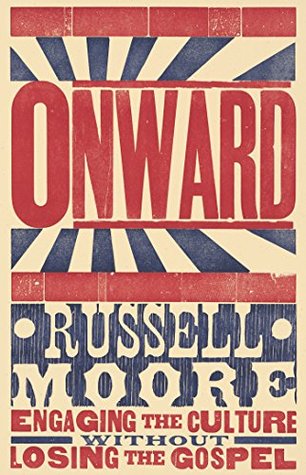More on this book
Community
Kindle Notes & Highlights
Read between
June 4, 2017 - January 4, 2019
If our principal means of differentiation is politics or culture, then we have every reason to see those around us as our enemies, and to see ourselves as somehow morally superior. But if what differentiates us is blood poured out for our sins, then we see ourselves for what we are: hell-deserving sinners in the hands of a merciful God.
Let’s be those who contend for culture, but not those who are at war with the culture.
Our end goal is not a Christian America, either of the made-up past or the hoped-for future. Our end goal is the kingdom of Christ, made up of every tribe, tongue, nation, and language.
The effective evangelist must engage not only at the level of the answers, but also at the level of the questions themselves.13
Christianity as the “real America.” If Christianity is a means to American values, America can get by without it, because America is learning to value other things.
A church that assumes the gospel is a church that soon loses the gospel. The church now must articulate, at every phase, the reason for our existence, because it is no longer an obvious part of the cultural ecosystem.
it is no longer possible to pretend that we represent the “real America,”
Jesus promised those who overcome a crown of life. But he never said anything about a “God and Country” badge.
In fact, the call to a gospel-focused engagement is a call to a more vigorous presence in public life, because it seeks to ground such witness where it ought to be—in the larger mission of the church.
After all, the New Testament Scriptures are often rebuking those churches for precisely the things we lament in our churches today: sexual immorality, division, carnality, arrogance (1 Cor. 4:7–13; 5:1–8; 6:1–8).
But as happened so many times in Scripture, the minority won, and it was “because they relied on the Lord, the God of their fathers” (2 Chron. 13:18).
A kingdom vision is necessary, first of all, to show us what matters.
There is a day of judgment, but the church warns of this judgment; the church does not carry it out (1 Cor. 5:12).
The people then, and the people now, welcome the future, so long as the future is an extension of everything we like about our lives now, just propelled out into eternity with nothing to stop us. That, though, is precisely what the sentence of death was given to keep us from: the zombie-like extension of our spiritual death forever.
We are to hold accountable those on the inside, and speak to those on the outside with persuasion and mission.
We tend to do the exact reverse. We rail against the culture outside, and speak in muted and ambiguous terms about what is common among us. We lambaste political and cultural heresies on the outside, but sit silently in the face of doctrinal heresies on the inside. That’s because we are seeking the wrong kingdom first.
A church that loses its distinctiveness is a church that has nothing distinctive with which to engage the culture. A worldly church is of no good to the world.
Culture is a rolling stone, and it waits for no band of Christians seeking to imitate it or exegete it.
But let’s not stop there. Let’s run toward and not away from the strangeness of an old gospel of a Messiah who was run out of his own hometown, but who, oddly enough, walked out of his own graveyard. For real.
Let’s not merely advocate for causes; let’s embody a kingdom. Let’s not aspire to be a moral majority but a gospel community, one that doesn’t exist for itself but for the larger mission of reaching the whole world with the whole gospel. That sort of kingdom-first cultural engagement drives us not inward, but onward.
We are Christians. This means that as we grow in Christlikeness, we are concerned about the things that concern him.
A church that doesn’t form consciences for such a calling will only ensure that those consciences are shaped by something other than the gospel.
We are not standing athwart history, yelling “Repent!” We are, like John before us, pointing to Christ and announcing, “Behold, the Lamb of God who takes away the sins of the world.”
He lived as a migrant refugee in a foreign land, a land long hostile to his own.
We ought to be listening to see who the world-system wants to devalue and degrade, most often first with words, so that we can know for whom we should be speaking and standing.
We shouldn’t be surprised by any of this. Money and power, abstracted from the kingship of Christ, always lead to violence.
Our congregations must be cultures of human dignity and human flourishing, workshops of kingdom reconciliation where people of different skin colors, income levels, national backgrounds, and ranges of ability and disability love and serve one another.


